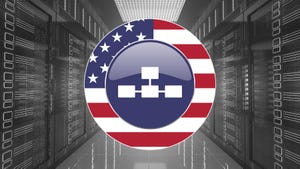Dedicated Cloud vs. Private Cloud: How to Choose the Right SolutionDedicated Cloud vs. Private Cloud: How to Choose the Right Solution
Dedicated clouds offer businesses full control over cloud infrastructure — ideal for specialized workloads but often at a higher cost. Here's when to choose them over private clouds.

Forget private cloud. Today, the thing to do if you want a cloud platform all to yourself is to build what's known as a dedicated cloud.
Well, OK. I'm being a bit hyperbolic here. There remain use cases for traditional private clouds — and at any rate, dedicated cloud is a form of private cloud, so it's not as if one will replace the other.
Still, dedicated cloud represents a distinct type of architecture that has emerged as a new cloud computing trend. Keep reading for details on what it means, along with tips to help you decide whether a dedicated cloud is right for you.
What Is a Dedicated Cloud?
A dedicated cloud is a type of private cloud in which an organization using the cloud has full control over the underlying infrastructure. This means that when a business uses a dedicated cloud, it chooses which hardware powers the cloud, as well as how the software running on the cloud is configured.
Importantly, dedicated cloud doesn't necessarily mean that the company that uses the cloud owns and manages the cloud infrastructure. You could create a dedicated cloud using a bare-metal-as-a-service offering, which lets you deploy and use hardware that is managed by a third-party provider. But you could also stand up your own hardware to create a dedicated cloud.
Variations in the Meaning of Dedicated Cloud
Some folks have slightly different takes on what the term dedicated cloud entails.
For example, Equinix's description of a dedicated cloud focuses on the idea that a dedicated cloud is a "staging ground" for connecting infrastructure to multiple external cloud providers — so the focus is as much on cloud network performance and integration as it is on control over infrastructure.
Still, this definition implies extensive control over infrastructure because you need that control to guarantee the types of integration with external clouds that Equinix is talking about. (Note that Equinix sells a bare-metal-as-a-service solution, Equinix Metal, that customers could use to create dedicated clouds of the type the company describes, although the company recently announced plans to discontinue the offering.)
Other takes on dedicated cloud essentially treat it as being synonymous with having a dedicated server — meaning a server that you control (even if it's managed by a third-party infrastructure provider) and that you alone use. I would argue that dedicated cloud shouldn't be conflated with dedicated servers because you can have dedicated servers without transforming them into a cloud platform. But if you set this detail aside, the core idea remains that a dedicated cloud is defined by having full control over infrastructure.
Dedicated Cloud vs. Private Cloud
How does dedicated cloud differ from private cloud? Dedicated cloud is a particular type of private cloud — one in which the cloud customer fully controls the cloud infrastructure.
Other types of private cloud exist, but they don't offer this level of control. One is hosted private cloud, which means an organization operates a private cloud environment on infrastructure controlled and managed by a third party. Typically, hosted private clouds provide limited options to customers regarding infrastructure configuration — which makes hosted private cloud distinct from dedicated cloud.
There are also virtual private clouds — environments running on top of public clouds that are isolated at the network level from the rest of the public cloud. Virtual private clouds are different from dedicated clouds because in a virtual private cloud, customers have no control over the underlying cloud infrastructure.
In short, all dedicated clouds are private clouds, but not all private clouds are dedicated clouds.
Pros and Cons of Dedicated Cloud
The major advantage of using a dedicated cloud is the control it offers. When you can choose exactly which infrastructure you use to host private cloud workloads and you control the infrastructure configuration, you can optimize your private cloud environment in ways that wouldn't be possible under other types of cloud architectures.
You could, for example, include AI accelerators within your private cloud infrastructure or deploy hardware-level security controls.
The major disadvantage of dedicated cloud is that it tends to cost more than a hosted private cloud that offers less control. Vendors that sell private cloud hosting services can offer them more cheaply if they choose consistent hardware and configurations for all of their customers; however, they charge a premium for organizations that want the luxury of a dedicated cloud.
When — and When Not — to Use Dedicated Cloud
So, should you invest in a dedicated cloud? The answer is likely to be yes if any of the following are true:
You want to operate a private cloud using specialized hardware.
You need full control over the underlying servers that power your private cloud.
You want to deploy resource-intensive workloads that may not operate optimally on generic hardware.
In other cases, however, a more traditional form of private cloud might be preferable — and likely cheaper to boot.
Read more about:
ITPro TodayAbout the Author
You May Also Like









